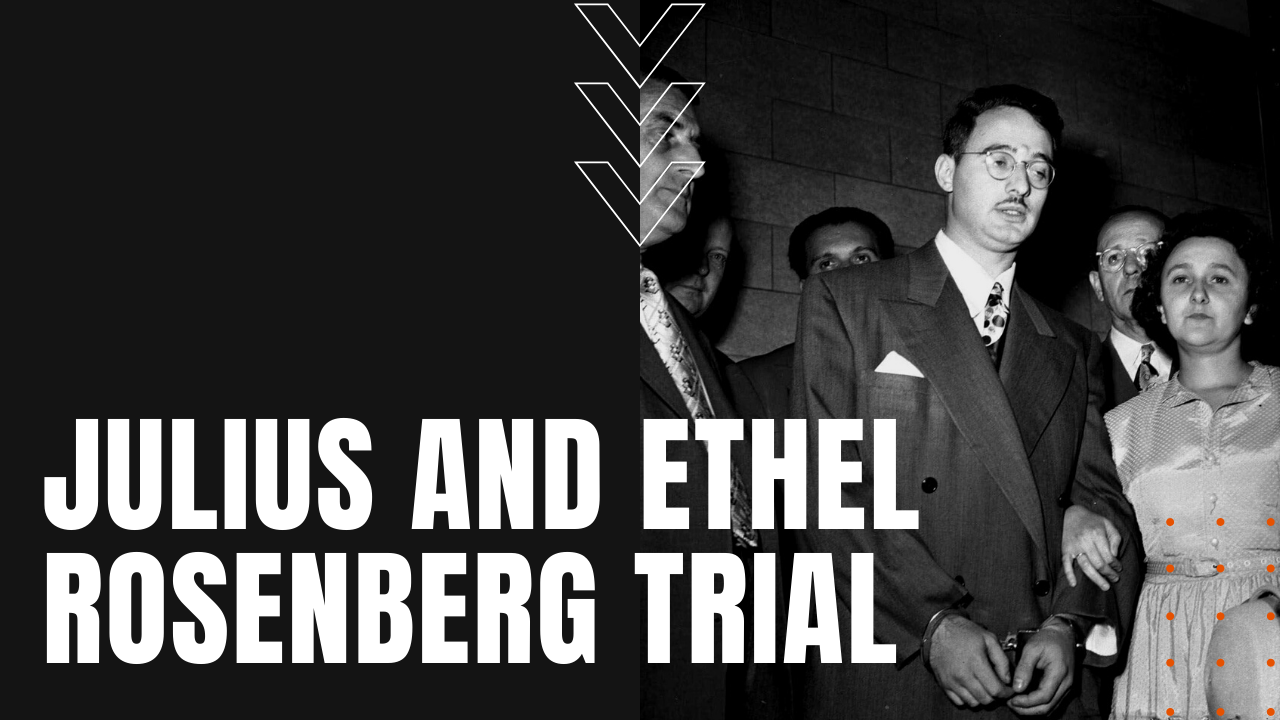Julius and Ethel Rosenberg: Espionage, Extradition and Execution

Soon after the end of World War Two, wartime allies the Soviet Union and the United States began to buck heads over ideological differences between Communism and Democracy, igniting a Cold War standoff that would rage for the next 45 years.
On August 29th, 1949, American political and military leaders were shocked at the speed with which the Soviet Union was able to achieve their first nuclear detonation, which was nicknamed “Joe 1” in honor of Soviet dictator and supreme leader Joseph Stalin. Coinciding with America’s anti-Communist hysteria fueled by witch-hunting Senator Joseph McCarthy, American officials discovered that Manhattan Project theoretical physicist, Klaus Fuchs, had funneled crucial nuclear design documents to the Soviets throughout World War Two.
Soviet Spies
Upon his arrest, Fuchs identified his courier as American Harry Gold, who in turn pointed the finger at David Greenglass as the spy who handed Fuchs’ stolen documents to the Soviets. The finger-pointing continued to escalate, when Greenglass named his sister Ethel’s husband Julius Rosenberg as the ultimate handoff man to Soviet spy Anatoly Yatskov.
Another accused conspirator was Morton Sobell, who fled with his family to Mexico City, before being extradited back to the United States on August 17th, 1950.
Rosenberg Trial
Avowed Communists Julius and Ethel Rosenberg proved to be uncooperative on the witness stand, pleading the U.S. Constitution’s Fifth Amendment against self-incrimination. The trial against the Rosenbergs began on March the 6th, 1951, when Greenglass confessed that he had given Julius Rosenberg a cross-sectional sketch of the Fat Man bomb dropped on Nagasaki, which led to matching convictions and death sentences for both Rosenbergs, under Section Two of the Espionage Act of 1917.
The U.S. government later offered to spare the Rosenberg’s lives in exchange for an admission of guilt and the names of other spies, leading to a public announcement from the Rosenbergs that stated:
“By asking us to repudiate the truth of our innocence, the government admits its own doubts concerning our guilt … we will not be coerced, even under pain of death, to bear false witness.”
Julius and Ethel Rosenberg
Many around the world professed that the Rosenbergs were innocent, and were simply scapegoated on the grounds of antisemitism and America’s anti-Communist paranoia, including notables such as Albert Einstein, Jean-Paul Sartre, Pablo Picasso and Dashiell Hammett.
Even Pope Pius the 12th appealed to President Dwight D. Eisenhower to spare the couple, but Eisenhower refused, letting the Rosenberg’s appeal process expire without intervening, leading to their execution by electric chair on June 19th, 1953.
Funeral services were held in Brooklyn on June 21st, which was attended by 500 people at a Jewish cemetery in Pinelawn, New York, while some 10,000 others paid their respects from outside the cemetery gates.
